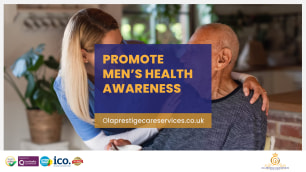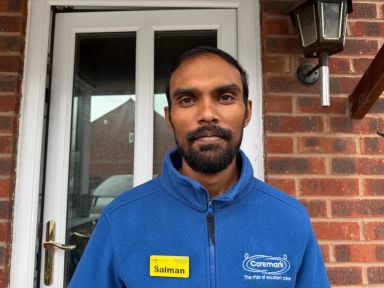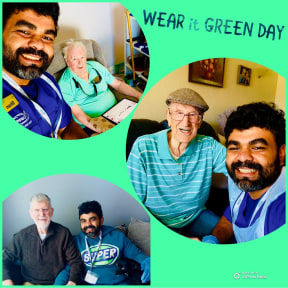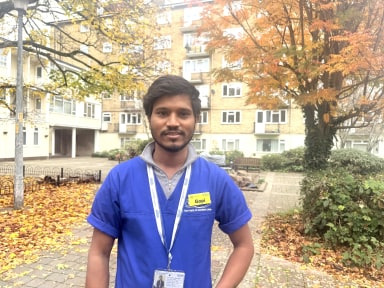Promote Men’s Health Awareness: Understanding Challenges

November marks a critical opportunity to promote men’s health awareness across the UK, emphasising both physical and mental wellbeing. As a month dedicated to acknowledging men’s health issues, this timeframe allows organisations, communities, and individuals to engage in meaningful dialogue, spotlight key concerns, and advocate for change. In this article, we’ll dive into identifying men’s health concerns, explore key men’s health challenges, outline strategies to raise men’s health awareness, and demonstrate how community outreach for men’s health awareness can make a tangible difference.
Recognising the Landscape: Identifying Men’s Health Concerns To effectively promote men’s health awareness, we must first identify men’s health concerns. Statistics show that men are disproportionately affected by certain cancers such as prostate and testicular cancer as well as mental health problems and cardiovascular conditions. For example, one in eight men in the UK experiences a common mental health problem, but men are significantly less likely to access psychological therapies. These patterns point to underlying cultural, behavioural, and systemic barriers that require targeted intervention.
Key Men’s Health Challenges When seeking to promote men’s health awareness, it is essential to acknowledge the range of key men’s health challenges that contribute to poor outcomes. Among these are:
Delayed help-seeking behaviour due to stigma around masculinity and vulnerability. The disproportionate burden of preventable conditions: prostate cancer, testicular cancer, cardiovascular disease, and suicide. Inequalities in access to health services, particularly in deprived areas where men may live up to ten years less than men in affluent areas. Lack of tailored training or awareness among health providers and community outreach efforts to connect men with services. Understanding these challenges helps frame why concerted efforts to promote men’s health awareness are so urgent—and how home-based care services, community providers and outreach campaigns all have a role to play.
Strategies to Raise Men’s Health Awareness Effectively promoting men’s health awareness means employing a variety of strategies to engage men, dismantle barriers and connect people with support. Some practical strategies to raise men’s health awareness include:
Educational campaigns that use clear, relatable language and break down stigma around mental health and physical illness. Workplace initiatives, community events and peer-led programs that foster openness, conversation and safe spaces for men to speak up. Screening drives, health checks, and targeted resources for men at risk (for example, prostate cancer awareness or health checks in higher-risk occupations). Collaboration between healthcare providers, charities and employers to integrate mens’ health messaging and services into everyday environments. Using digital tools, apps or remote support platforms to offer accessible and anonymous help, particularly for men who are reluctant to attend face-to-face services. By deploying multiple strategies to raise men’s health awareness, organisations can widen their reach, adapt to diverse settings and reduce the barriers that men often face when considering their health.
Community Outreach for Men’s Health Awareness Ola Prestige Care Services Dartford - Kent - United kingdom - Home Services - Hospital Reablement - Community Outreach for Men’s Health Awareness Community outreach for men’s health awareness plays a pivotal role in creating sustained change. Rather than isolated campaigns, outreach should be integrated into local homes, workplaces, and social networks, even domiciliary care settings. For example:
Local support groups or “men’s sheds” provide informal, non-clinical settings for discussion and peer support, which help penetrate social isolation and mental health risk among men. Home-care providers and domiciliary services can build awareness among their male clients or carers, offering sign-posting and screening in a familiar context. Churches, sports clubs, local councils and employers can host health check-events, talks, and wellness sessions tailored to men’s health. Social media, local radio, and community newsletters timed around November (Men’s Health Awareness Month) help raise visibility and momentum. Community outreach for men’s health awareness isn’t a one-off. It must be continuous, culturally sensitive, and anchored in trust and relevance to men’s lives.
Linking Back to the Need: Why This Matters When we promote men’s health awareness effectively, we address critical outcomes: earlier detection of illness, improved mental health outcomes, reduced preventable deaths, and increased wellbeing. For example, data suggests men in the UK die on average six years earlier than women, often from preventable causes. By applying strategies and outreach focused on men, these disparities can be challenged. Moreover, providing plain-language information, accessible services, and trusted points of contact makes a difference.
Next Steps: Taking Action in November and Beyond In summary, to truly promote men’s health awareness throughout Men’s Health Awareness Month and its lasting impact we recommend organisations, communities, and individuals:
Schedule awareness activities during November (and keep them going year-round). Use targeted messaging for men, emphasising empowerment rather than blame. Work with home-care and community-care providers to extend support into the community and home environments. Monitor outcomes: track engagement, screenings completed, referrals made and improvements in help-seeking behaviour. Engage men’s voices and peer-support networks: the most effective outreach is often driven by men speaking to men. Conclusion Promoting men’s health awareness is more than a campaign—it’s a commitment to changing culture, reducing barriers, and empowering men to take control of their health. By identifying men’s health concerns, acknowledging key men’s health challenges, using robust strategies to raise men’s health awareness, and embedding community outreach for men’s health awareness, we can make meaningful progress. The month of November gives us a powerful window—but the greater goal is sustained change.
Let’s use this time to encourage open conversations, connect men with the care they deserve, and build healthier futures for all.
click here for more details or to contact Ola Prestige Care Services-Dartford
Latest Care Provider & Regulatory News
 27-Nov-25
Promote Men’s Health Awareness: Understanding Challenges
27-Nov-25
Promote Men’s Health Awareness: Understanding Challenges
 27-Nov-25
Belong Shines at Great British Care Awards Regional Heats
27-Nov-25
Belong Shines at Great British Care Awards Regional Heats
 26-Nov-25
Runs in the family
26-Nov-25
Runs in the family
 26-Nov-25
Aiming high
26-Nov-25
Aiming high
 26-Nov-25
A great move
26-Nov-25
A great move